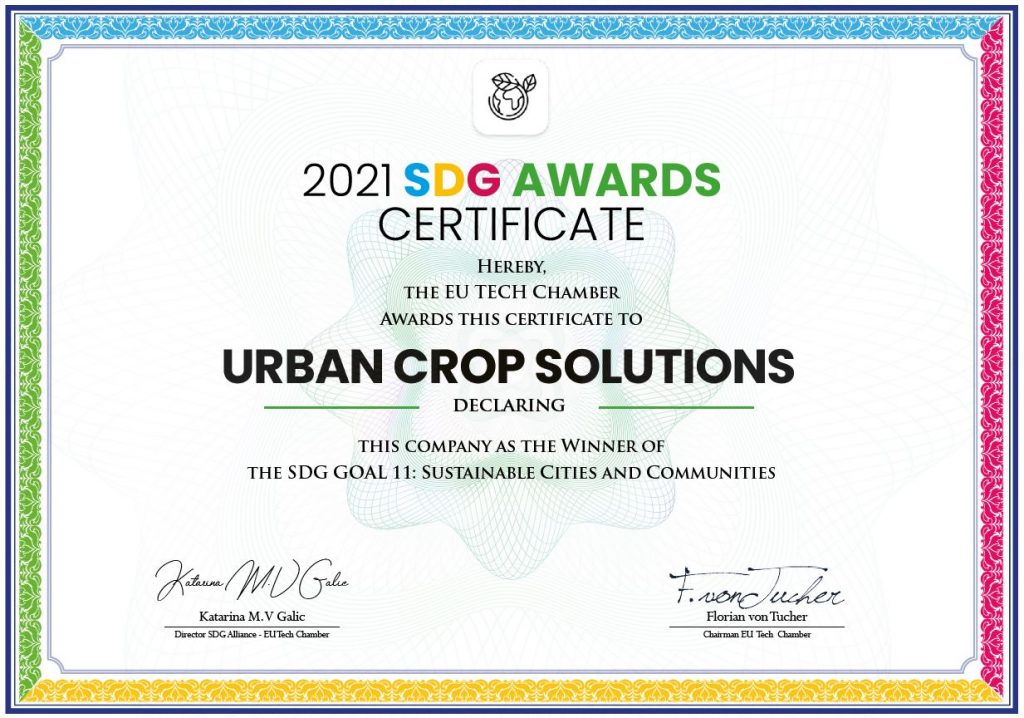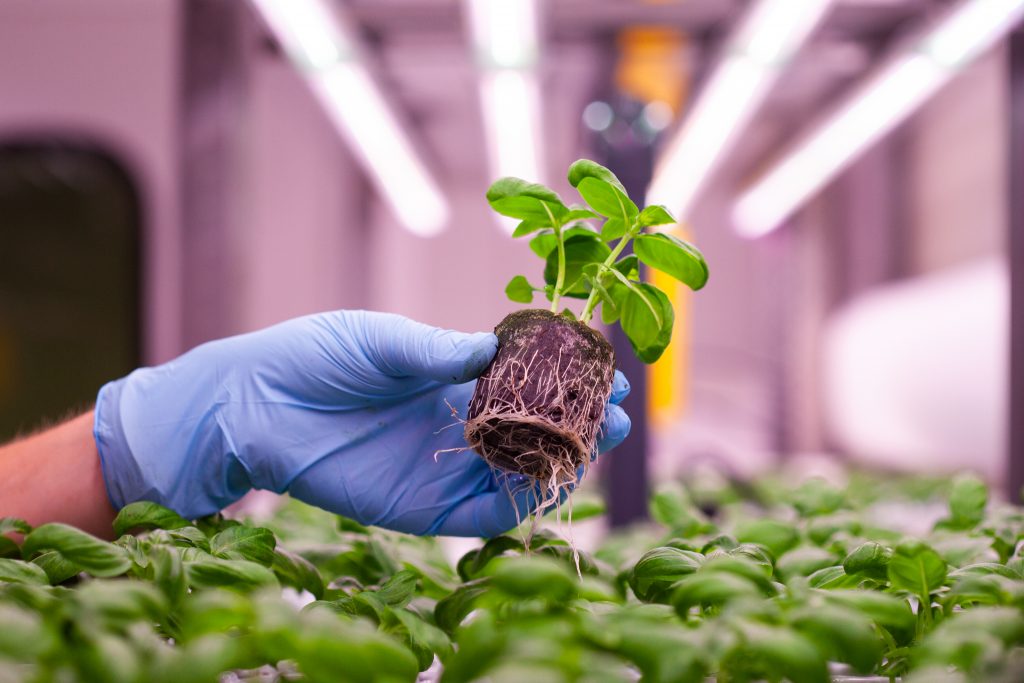Urban Crop Solutions has won the SDG Award, from the EU Tech Chamber, for their contributions to the United Nations’ Sustainable Development Goal 11, to make cities and communities more sustainable. They were endorsed for their holistic approach in their mission to bring food production closer to the point of consumption, through indoor vertical farming; as well their research into innovative waste reduction and recycling methods to make agriculture more circular.

The award was announced at the SDG Awards 2021 Summit, organised by the EU Tech Chamber, and sponsored by the European Senate of Economy and Technology. Of the 170 finalists, 17 companies received an award per SDG. Urban Crop Solutions was nominated for and took part in the competition for SDG 11: Sustainable Cities and Communities.
The indoor vertical farming industry has long emphasised the contributions of indoor vertical farming to many of the 17 sustainable development goals – of which include but are not limited to SDG 3: Good Health & Wellbeing, SDG 12: Responsible Consumption & Production; and SDG 15: Life on Land. And with reason. Indoor farming grows plants in completely controlled and closed environments, requiring zero use of any chemicals or pesticides. The food is moreover grown close to the point of consumption, thus reducing food miles and the need for long periods of refrigeration – which has both a negative impact on the environment and on the nutritional content of food. Furthermore, indoor farming requires 95% less water than traditional agriculture – a factor of particular interest in areas with water scarcity.
Urban Crop Solutions, however, have positioned themselves as looking at an even bigger picture. Their mission and vision does not stop at bringing food production closer to the point of consumption, and minimising the input of resources required (i.e., water and land), but also in reducing what goes out as waste. They are currently working as part of a research consortium to integrate within an indoor farm, an anaerobic digestor that converts food waste into power, CO2, nutrients, heat, and biogas – satisfying all the inputs required by an indoor farm.

“We wanted to approach this holistically. We all know that cities and urban areas are black boxes where a lot of inputs go in, but often, the only thing that comes back out is waste” said Founder & CTO, Maarten Vandecruys. “What we are doing here, is actually producing food from food waste – essentially leading to an entirely circular system and this is crucial if we want to make urban farming a success”, he explained.
What makes cities and urban areas more sustainable is difficult to sum up and measure. There are multiple considerations, as can be deduced from the wide-ranging indicators that the UN has set-out for SDG 11 – which include but are not limited to housing, transportation, resource efficiency, and air quality and waste management. The category was a tough one to contend in, with runners-up coming from the industries of aviation and aerospace, mobility and transportation, and construction and materials. This award is a tremendous recognition and milestone for Urban Crop Solutions, in proving that there is much yet to be realised within the indoor farming sphere in an urban context.

